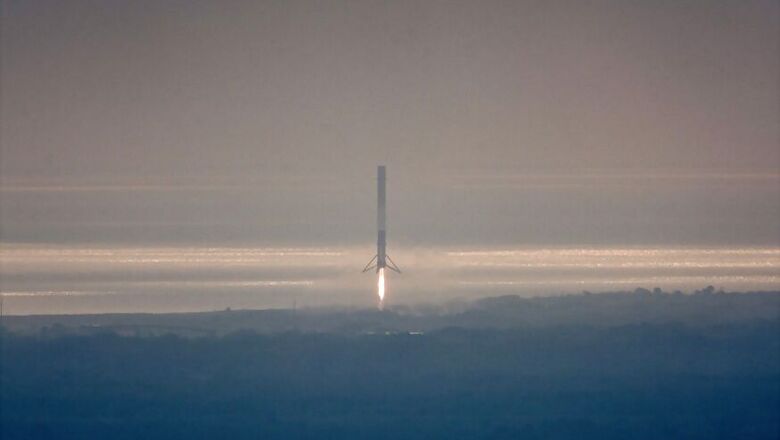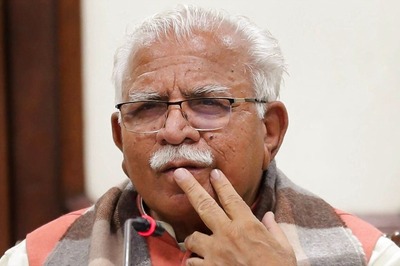
views
SpaceX on Sunday launched its Falcon 9 rocket from NASA’s historic Launch complex - 39A. The launch took place at Kennedy Space Center, Cape Canaveral, Florida at 9:38 am EST (1438 GMT).
The Falcon 9 took off with the Dragon Cargo ship carried standard supplies for six astronauts currently at the International Space Station.
Initially, the SpaceX rocket was to take off on Saturday. The launch was cancelled 13 seconds before lift-off due to a technical issue with the rocket engine.
The issue was resolved on Saturday night by replacing the thrust vector control actuator.
The unmanned spaceship packs around 2,500 Kilogrammes of cargo which will be delivered to the space station by February 22, as per a SpaceX spokesperson.
Launchpad 39A is the same Launchpad from which Apollo 11 took off, carrying the first ever humans to reach the lunar surface.Also read: How ISRO And NASA Achievements Have Shaped 'Space Exploration' Over The Years
The mission holds even more significance as this is the third time that SpaceX has successfully brought the rocket to a safe landing on a solid ground.
SpaceX has since long been working on reusable rockets, thus trying to eliminate the practice of blasting the rocket parts into the sea after a single use.
Around 10 minutes after the launch of Falcon 9, SpaceX successfully guided the rocket down to an upright landing by re-firing the engines on Falcon 9’s boosters.
The rocket touched base at Landing Zone 1, Cape Canaveral Air Force Station.
SpaceX CEO, Elon Musk tweeted ‘Baby came back’ at the time of the rocket’s return journey.
By now, SpaceX has successfully landed multiple rockets after take-offs and seem to be improving on their reusable rocket technology. Once it becomes a completely reliable solution, the whole process will bring down the overall cost of rockets drastically.Also read: ISRO to Gift SAARC Members a Satellite Launch in March



















Comments
0 comment